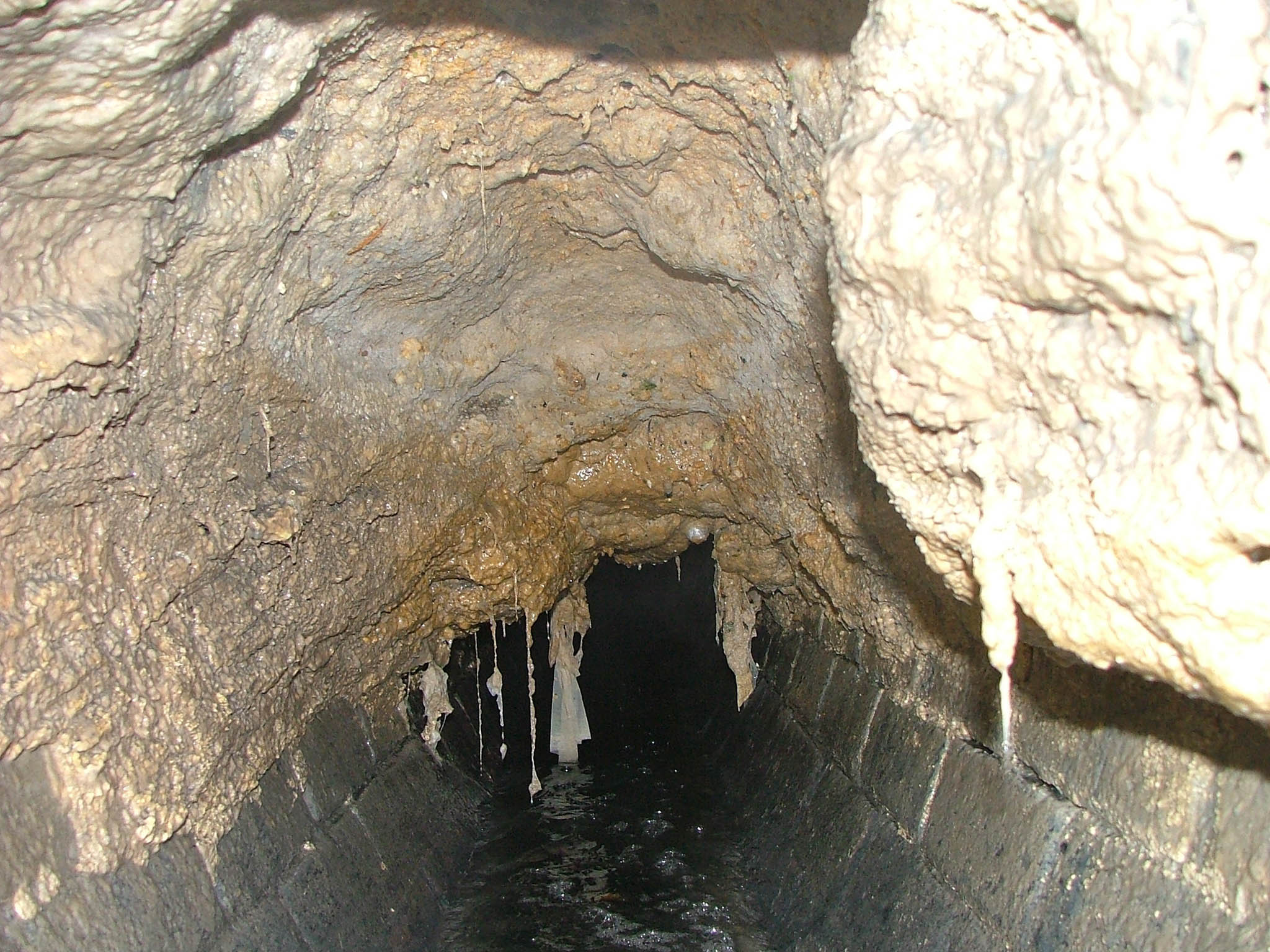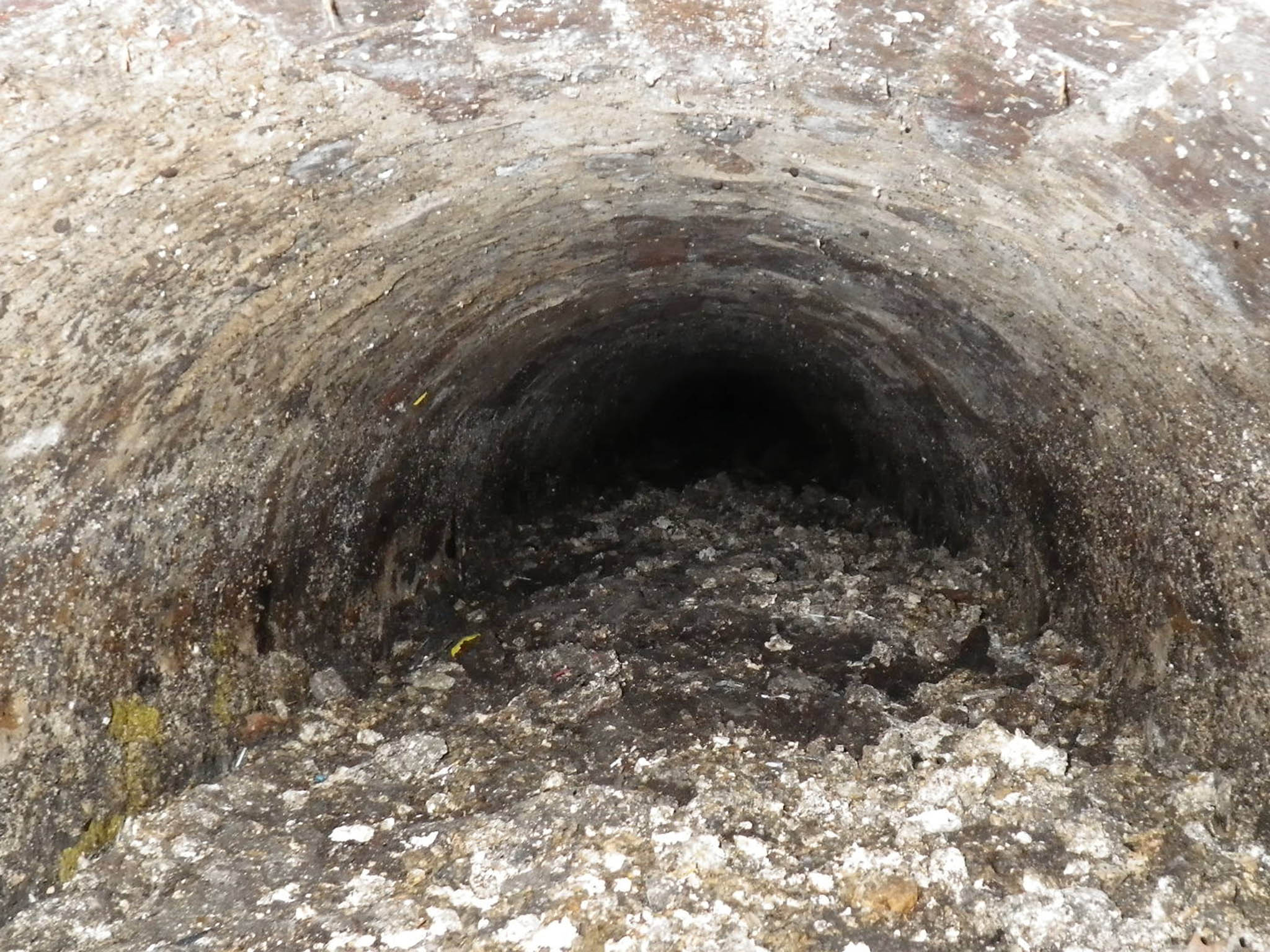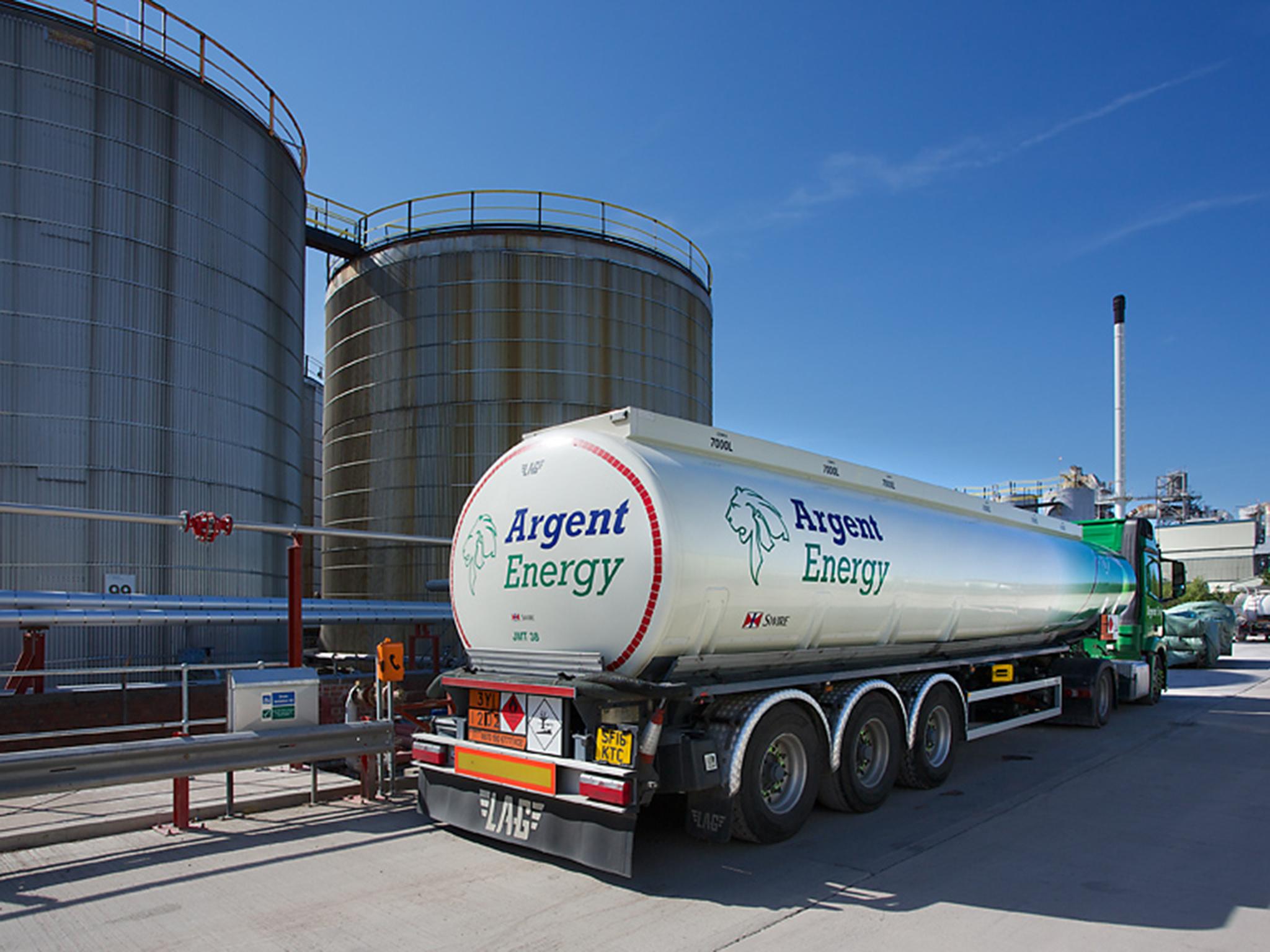The fat-powered buses that are coming to a street near you
They’re costing our water companies millions to remove, but the solidified ‘fatbergs’ that build up in our sewers are now powering buses and trucks we use every day

Lurking in darkness under our city’s streets is a silent and growing threat to human health. Cooking fats and grease tipped down the sink in homes and businesses are mixing with solids in our sewers and forming giant lumps of solid fat, sometimes the size of cars, sometimes hundreds of metres long. They cause a media frenzy when photos of them appear online, but in their most extreme form, ‘fatbergs’ can damage or block or sewers, causing serious disruption. Earlier this year a fatberg running the length of an entire sewer was found in Cheltenham, where it took eight hours to unblock.
They’re a particular problem in older systems, such as the 1940s-era sewers that had to be completely replaced when a vast, 10-tonne fatberg the size of a London bus led to the replacement of 100 feet of tunnels, costing Thames Water £400,000. Even that berg was smaller than the 15-tonne Kingston fatberg that resulted in the formation of Thames Water’s crack fatberg hit squad, a team of sewage treatment experts specialised in their removal. In practice, the removal of fat and grease deposits from the capital’s sewers relies on relatively basic techniques, blasting the solid waste with high-pressure hoses, and scraping off the remnants.

“We clear a sewer blockage caused by fatbergs every seven-and-a-half minutes and spend more than £1m a month clearing them,” says Lawrence Gosden, head of wastewater at Thames Water.
“Annually, there are around 366,000 sewer blockages in the UK,” he adds.
“Eight times every hour, a Thames Water customer suffers a blockage caused by sewer abuse. As well as being costly in terms of money, there is also a human cost of these fatbergs, as we often have to close a road to dig down and clear them, often causing delays and inconveniences.”
As destructive as they are, utility companies are beginning to take advantage of some surprising opportunities to be found by reprocessing fatbergs.
At a site on England’s North-west coast, Argent Energy has started turning fatbergs from wastewater facilities around the country into a biodiesel.

In a simplified version of the process the untreated fats, oils and greases – FOG – arrives at the plant, gets heated to separate oil and grease, has excess solids removed and becomes biodiesel with the addition of a few chemicals, polished off with distillation.
By the time Argent has finished, the fat has been turned into a clear yellow-coloured liquid, an industry standard biodiesel that is ready for a variety of uses. Roughly 24 to 40 per cent of an original untreated fatberg that enters the Argent Energy plant is turned into the fuel, which is considered to be much more environmentally friendly than both regular diesel and biodiesel from sources such as palm oil.
“It is significantly better in terms of preventing CO2 emissions, being waste-based rather than a crop-based biofuel,” says Dickon Posnett, director of corporate affairs at Argent Energy.
“When calculating a lifecycle analysis of the greenhouse gases emitted by fuels,” says Posnett, “by virtue of the fact you are using waste, you only need to start counting your emissions at the point at which you collect it.
“So you start counting the greenhouse gas emissions from when you pull the stuff out of the sewers”.
Quantifying the exact carbon footprint of crop-based biofuels is extremely difficult, and involves assessing the impact of land-use change in the countries that grow the crops. The Government has settled on the position that while the science is not exact, biofuels from waste should be encouraged more than those from crops. Some studies show that the worst crop-based biofuels, although they’re not used in the UK, could be considered even less environmentally friendly than conventional fossil diesel.
It may sound like a novel experiment but Argent is currently extracting 30 tonnes of FOG from just one wastewater facility in Birmingham every week, and has plans to collect much more.The

“The new plant can handle up to 300,000 tonnes of waste fats and oils, including fatbergs, annually,” says Posnett. “It’s not yet at full capacity and we’re ready to work with all water treatment companies to divert even more of this kind of material from landfill”.
This biodiesel is now going to power 6,000 to 7,000 trucks and buses around the UK, including buses in London, Manchester and Glasgow running on a blend of biodiesel and fossil diesel. Altogether, by using these high bio-blends, these bus and truck companies are responsible for making savings in CO2 emissions of more than 120,000 tonnes every year.
“While we’re doing a lot of work on further improving the environmental benefits of biofuels, more and more buses and trucks are of the Euro VI [EU emissions] standard. These make a huge improvement on tailpipe emissions, eliminating 95-98 per cent of them. We’re going to have diesel heavy duty vehicles around for decades to come so with these kind of results and the greenhouse gas savings, we may as well get as much renewable biodiesel in them as possible”.
Argent’s operation follows a successful effort by renewable company 2oC, to build and operate Europe’s first FOG-fuelled power plant at Beckton, east London. With 50 per cent of its power coming from urban fats, typically from restaurants, the plant generates 130GWh annually, which is in turn used to power Thames Water’s Beckton sewage treatment plant.

The 2oc site manages to get through 30 tonnes of fat a day.
“At the moment to clear fatbergs we either dig them out of the sewers and dispose them at our sewage works”, says Thames Water’s Lawrence Gosden, “or we clear them with a high-pressure jet to allow it to work through our sewer system.”

“Once they get to our sewage works, we then use them to create renewable energy, to be used at our sites, which is not only great for the environment but it helps us to keep our costs low.”
“We’re working towards making our wastewater side of the business 50 per cent self-powered in the next two years.”
The use of fatbergs as an energy source is even endorsed by Grand Designs presenter and designer Kevin McCloud. He was seen recycling fats from London’s sewers for his cabin in Kevin McCloud’s Man Made Home on Channel 4.
London produces around 33 million to 42 million litres of used cooking oil, with much of it ending up down the drain. The problem is gradually getting worse across the country and in big cities globally, with a growing quantity of flushed wet wipes and toilet roll adding to the issue.
In their ongoing battle against the fatberg, water companies have launched their own information campaigns aiming to change the way we treat our waste. Welsh Water started its “Let’s stop the block” campaign in response to a spate of fatberg blockages and Thames Water has its own “Bin it – don’t block it” drive, which Lawrence Gosden says is delivering results.

“We’ve found that when customers realise what impact their actions are having, and how little changes can make a huge difference, they generally change their behaviours.”
A recent campaign in east London, he adds, resulted in a “26 per cent reduction in sewer blockages, with 70 per cent of people saying they had changed their behaviour following the initiative.”
Across the pond, New York has operated a “Cease the Grease” campaign, while Newcastle’s council invented a character called “Dwaine Pipe”, an animated green water pipe who explains how best to use your sink and toilet through online videos.
But the most creative awareness project was started in 2015, when the Dutch artists Mike Thompson and Arne Hendriks, set up an installation called “Matter of Life”, where the pair suspended artificially constructed fatbergs in liquid, partly to draw attention to fatbergs as a source of energy.
So what should we be doing with our fats and greases at home?

A fatberg is more than just fat, grease and food remnants. Often thought of, or marketed as, “flushable”, wet wipes that enter into the sewage system can become a core building block of a fatberg. Rather than breaking down into smaller matter, like regular toilet paper, wet wipes contain plastics and can persist underground until they are cleared out by specialists.
Described as “indestructible” by Vincent Sapienza of New York’s Department of Environmental Protection, the city spent $18m (£14m) on “wet-wipe-related equipment problems” between 2010 and 2015, during which time the volume of solid material in its sewers doubled.
Wet wipes have grown in popularity over the past 10 years, but city authorities the world over are openly challenging the claim that these products are truly flushable as is often suggested.
In 2015, the City of Wyoming in Minnesota went even further, filing a class-action lawsuit again Procter & Gamble, Kimberly-Clark, Nice-Pak and three other manufacturers of wet-wipes.
Sanitary towels, kitchen roll, tampons, condoms, dental floss, nappies and tights are all high up on the list of fatberg ingredients, according to Thames Water.
“As well as not flushing non-flushable items, we also urge customers not to pour fats, oils or greases down the drain or sink. Contrary to the myth, running the hot tap and using washing up liquid doesn’t help prevent blockages”.
In the longer term, the clever disposal of fats from houses and businesses might need to follow the example of the waste food bins offered by councils so we can better capture and make use of our oily wastes before it becomes the next fatberg.
Join our commenting forum
Join thought-provoking conversations, follow other Independent readers and see their replies
Comments